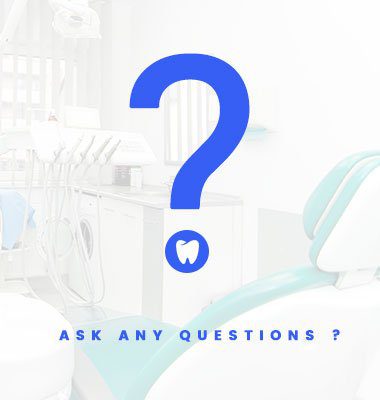Frequently asked questions
General Oral Health
Regular dental checkups are crucial for maintaining good oral health. The American Dental Association (ADA) generally recommends visiting your dentist at least twice a year for cleanings and examinations. However, Dr. Elgalady may recommend a personalized schedule based on your specific needs. Factors like gum health, risk of cavities, and overall well-being influence the recommended frequency of visits.
Fluoride is a mineral that strengthens tooth enamel, making your teeth more resistant to decay and cavities. It can be found in various sources:
- Fluoridated drinking water: Many municipalities add fluoride to public water supplies for optimal oral health.
- Fluoride toothpaste: Most toothpastes contain fluoride, helping prevent cavities while you brush.
- Professional fluoride treatments: Dr. Elgalady may recommend concentrated fluoride treatments for individuals with higher decay risk.
The answer is yes. Research has shown a strong connection between oral health and your overall well-being. Poor oral hygiene has been linked to various health problems, including:
- Heart disease: Inflammation in the gums (gingivitis) can increase the risk of heart disease.
- Diabetes: Uncontrolled diabetes can make you more susceptible to gum disease.
- Respiratory issues: Chronic gum disease may contribute to respiratory infections.
A consistent oral hygiene routine is vital for a healthy smile. Here are some key practices:
- Brushing: As mentioned earlier, brush your teeth twice daily with fluoride toothpaste for at least two minutes.
- Flossing: Daily flossing removes plaque and food particles from between your teeth.
- Mouthwash: Consider using an antiseptic mouthwash to further reduce bacteria and freshen breath. (Note: mouthwash is not a substitute for brushing and flossing)
- Diet: Maintain a balanced diet and limit sugary snacks and drinks. Sugary foods contribute to plaque buildup, increasing the risk of cavities.
- Brushing and Flossing: Consistent brushing and flossing form the foundation of cavity prevention.
- Diet: Limit sugary and acidic foods and drinks, which can erode tooth enamel and create cavities.
- Dental Sealants: These thin coatings applied to the chewing surfaces of molars and premolars can act as a barrier against decay.
- Fluoride Treatments: Dr. Elgalady may recommend professional fluoride treatments for individuals with a higher risk of cavities.
Brushing:
- Use a soft-bristled toothbrush and fluoride toothpaste.
- Brush for at least 2 minutes, twice a day, using gentle circular motions.
- Don't forget to brush your tongue to remove bacteria.
Flossing:
- Floss daily to remove plaque and food particles from between your teeth.
- There are different flossing techniques; ask Dr. Elgalady or a dental hygienist for the best method for you.
While fluoride is essential for healthy teeth, choosing the perfect toothpaste depends on your individual needs. Sphinx Dental Medicine recommends several trusted brands with fluoride, including Colgate, Crest, Sensodyne, and Arm & Hammer. However, some people have specific concerns like tooth sensitivity or gum health. During your consultation, Dr. Elgalady can recommend the most suitable toothpaste to address your unique oral health goals.
A dental sealant is a thin, protective coating applied to the chewing surfaces of your back teeth (molars) to prevent cavities. It acts as a barrier, keeping food particles and bacteria from getting into the tiny grooves of your teeth. Sealants are most commonly recommended for children, but adults can also benefit. Your dentist will determine if sealants are a good option for you during your check-up.
Preventing bad breath (halitosis) starts with good oral hygiene. Be sure to brush your teeth twice a day and floss daily to remove food particles and plaque. You should also brush your tongue, as bacteria can accumulate there. Staying hydrated, eating a healthy diet, and scheduling regular dental cleanings can also help keep your breath fresh. If the problem persists, please talk to your dentist.
Dental Treatments & Services
Several factors can cause tooth sensitivity, including:
- Exposed tooth roots: Receding gums can expose the root surface, which is more sensitive than enamel.
- Worn enamel: Overly aggressive brushing, acidic foods, or grinding your teeth can wear down enamel, leading to sensitivity.
- Cavities: Decay can irritate the tooth's inner pulp, causing sensitivity.
- Gum disease: Inflammation of the gums can lead to sensitivity in the teeth.
If you experience tooth sensitivity, schedule an appointment with Dr. Elgalady for a diagnosis and treatment plan.
Both electric and manual toothbrushes can be effective at removing plaque and maintaining oral hygiene. The key is proper technique:
- Electric Toothbrushes: Follow the manufacturer's instructions for optimal use.
- Manual Toothbrushes: Use a soft-bristled brush and gentle circular motions for at least two minutes.
The American Association of Orthodontists recommends an initial orthodontic evaluation around age 7. However, orthodontic treatment can be beneficial for individuals of all ages. During a consultation with Dr. Elgalady, you can discuss your specific needs and explore treatment options like braces or clear aligners.
Laser teeth whitening is generally a safe and comfortable procedure. While most patients experience minimal discomfort, some individuals may feel slight sensitivity during or after the treatment. Dr. Elgalady will discuss potential side effects beforehand and take steps to minimize any discomfort, such as applying a protective gel to the gums.
Dental implants are a remarkable long-term solution for missing teeth. With proper care, they can potentially last a lifetime! To ensure the longevity of your implants, it's crucial to:
- Maintain regular dental checkups and cleanings.
- Practice excellent oral hygiene at home, including brushing and flossing.
- Live a healthy lifestyle, avoiding habits like smoking that can compromise implant success.
Dr. Elgalady will provide detailed post-implant care instructions to optimize the results and lifespan of your dental implants. He'll also schedule regular follow-up appointments to monitor your implant health.
A dental crown is a custom-made cap that is placed over a damaged or decayed tooth to restore its shape, size, strength, and appearance. You might need a crown if you have a large cavity, a cracked or broken tooth, or after a root canal procedure to protect the tooth. Crowns can also be used to cover a dental implant.
A root canal is a treatment to repair and save a tooth that is badly infected or decayed. During the procedure, the infected pulp is removed, and the inside of the tooth is cleaned and sealed. With modern techniques and local anesthesia, a root canal is no more uncomfortable than getting a filling. It actually relieves the pain caused by the infection.
Wisdom teeth extraction is a common procedure performed to remove one or more of your third molars, often to prevent overcrowding, impaction, or infection. Your dentist will take X-rays to assess the position of the teeth and create a safe and comfortable treatment plan. The procedure is typically performed under local anesthesia, and we provide detailed aftercare instructions to ensure a smooth recovery.
Dental Emergency & Anxiety
We understand that dental emergencies can be stressful. Sphinx Dental Medicine offers emergency appointments throughout the day, Monday through Saturday, from 9:00 AM to 6:00 PM, excluding school holidays. For after-hours emergencies, weekends, or holidays, you can call 386-263-2199 for instructions to the nearest emergency dental service.
For severe pain, swelling, or injuries, seek immediate dental care. Here are some specific examples:
- Knocked-out tooth: If possible, gently try to place the tooth back in the socket. If that's not feasible, store the tooth in milk and see a dentist immediately.
- Severe toothache: Don't ignore a severe toothache. Contact Sphinx Dental Medicine to schedule an appointment as soon as possible.
Dental anxiety is a common concern. Sphinx Dental Medicine understands and is committed to providing a comfortable and relaxing experience. Here are some ways we can help:
- Communication: Let our staff know about your anxiety when scheduling your appointment.
- Sedation options: In some cases, Dr. Elgalady may offer sedation dentistry with nitrous oxide or oral medication to help you relax during the procedure.
- Relaxation techniques: Practice deep breathing exercises or listen to calming music to manage anxiety before and during your appointment.
If a permanent tooth is knocked out, act quickly. Gently rinse the tooth without scrubbing it. If possible, try to reinsert the tooth into its socket. If not, place it in a container of milk or a special dental solution. Contact us immediately; the sooner you are seen, the better the chance of saving the tooth.
General Questions
Sphinx Dental Medicine strives to provide affordable and transparent pricing. While specific fees depend on the treatment required, we always ensure you understand the recommended treatment plan and associated costs before any procedure. Additionally, we can discuss alternative treatment options, if applicable.
Yes, Sphinx Dental Medicine accepts most dental insurance plans. We recommend contacting your insurance provider directly to understand covered services, co-pays, and limitations within your plan.



